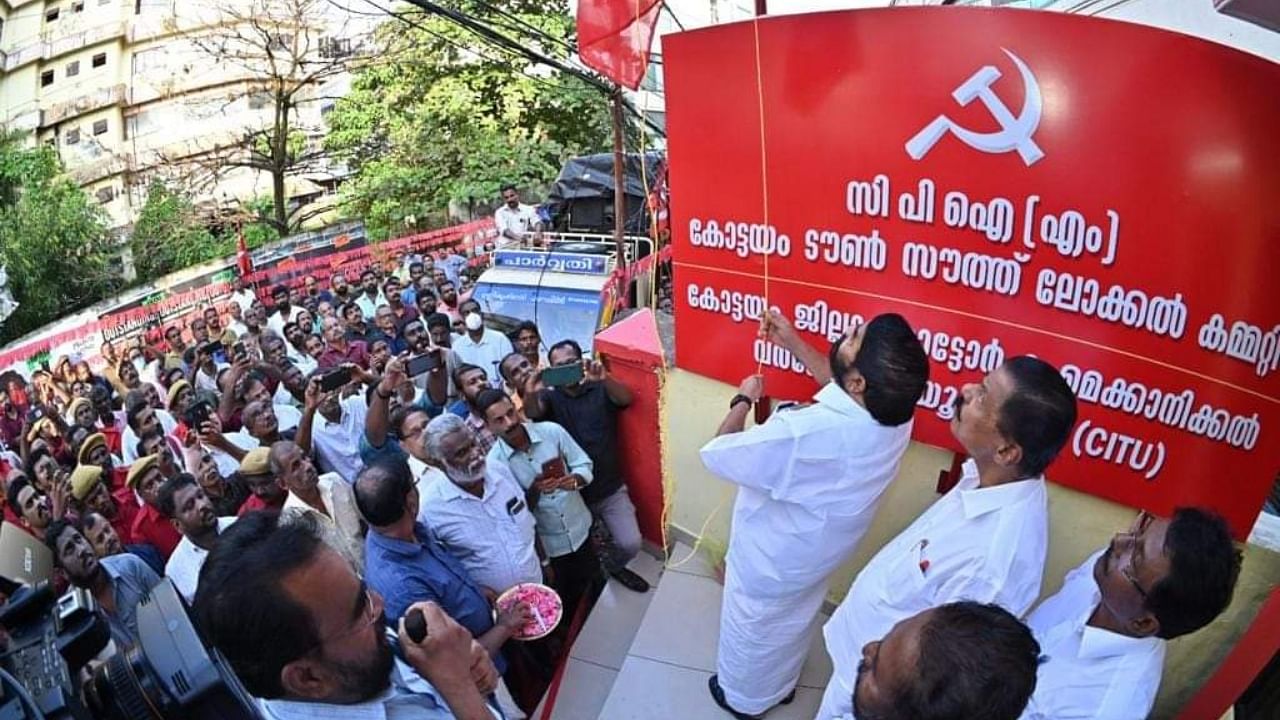
On July 15, the 12,000-seat hall hosting an anti-Uniform Civil Code (UCC) seminar in Kozhikode, in north Kerala, was nearly full. It was the first in a series of anti-UCC seminars organised by the Kerala faction of the Communist Party of India (Marxist) (CPI(M)).
Opening the seminar, General Secretary of the CPI(M) Sitaram Yechury said that the Union government’s intent seemed to be to sharpen Hindu-Muslim polarisation and “convert the secular, democratic Republic of India” into “a rabidly intolerant fascist Hindutva Rashtra”.
On July 16, the CPI(M) newspaper Deshabhimani had a seven-column front-page story titled ‘Ethirkkum Onnai’ (Will oppose unitedly).
In reality, the seminar turned out to be a damp squib. Many prominent leaders and political parties in the CPI(M)-led Left Democratic Alliance (LDF) were absent from the seminar. Additionally, Muslim women leaders who attended the seminar were not given a seat on the stage or an opportunity to speak at it, even though the UCC will be impacting the minorities, especially women.
EP Jayarajan, the CPI(M) Central Committee member and the LDF convenor, and leaders from the Communist Party of India (CPI), the second-biggest party in the LDF, skipped the seminar, leaving the CPI(M) in a tight spot. While Jayarajan was not in town, the CPI complained that the CPI(M) did not discuss the matter at the LDF meeting.
In June, Prime Minister Narendra Modi pushed for the Uniform Civil Code (UCC) at booth-level meetings of BJP members in Madhya Pradesh, triggering debates on equality, uniformity, and the rights of women.
Since then, the CPI(M), especially the Kerala faction, has been seeing this as an opportunity to bring the Muslims closer to them, with the 2024 general elections in mind. Interestingly, the CPI(M) in Kerala triggered heated debates, even though the UCC draft is not yet available to the public. The party’s focus is on the Muslim community saying it will be in danger, and only the CPI(M) could be the saviour.
The CPI(M) tried to get the Indian Union Muslim League (IUML), an ally in the Indian National Congress-led United Democratic Front (UDF), to attend the July 15 seminar, but the IUML declined the invitation. This was yet another setback for the CPI(M). The IUML had been with the LDF between 1967 and 1969. The league has a history of handling sensitive issues maturely, the best example being how the IUML held the Muslims and Kerala’s social fabric together after the Babri masjid demolition in 1992.
In between, the resurfacing of writings of EMS Namboothiripad, the first Chief Minister of Kerala and among the founders of the CPI(M), supporting the UCC in 1986 has put the CPI(M) in a dilemma. EMS stood for the UCC following the Shah Bano case in the Supreme Court, which won a monthly maintenance allowance upholding the UCC in the Constitution’s Article 44. In the 1987 assembly polls, EMS took a pro-UCC/anti-Sharia stand to attract Hindu votes. It worked. The Left Front came to power, which was seen as EMS’ shrewdness. Today, before and after the seminar, the CPI(M) leaders are writing page after page and giving interview after interview to prove that EMS wasn’t wrong. These efforts, however, are not being readily accepted by the public.
The CPI(M) is also in a tight spot because it allowed Samastha, a Sunni-Shafi’i body in northern Kerala, to participate in the July 15 seminar. This has backfired, because the Samastha is infamous for its regressive, anti-women stance. Amplifying this was the fact that none of the women invitees at the seminar were allowed to share the stage or speak at the seminar.
Khadeeja Mumthas, the chairperson of the Forum for Muslim Women's Gender Justice, criticised the CPI(M) for not allowing Muslim women to speak at an anti-UCC seminar. Mumthas said that it showed that the CPI(M) was more interested in appeasing religious leaders than listening to the voices of Muslim women.
When Modi talked about the UCC, the CPI(M) jumped into the ring as a saviour of Muslims. But, its seminar exposed its shortcomings: it could not get its senior leaders to attend, its allies were absent, potential allies were missing, and so were women leaders.
Additionally, this seminar was the first political action of the newly-appointed CPI(M) state secretary M Govindan. Unfortunately, the haste in organising the seminar and overconfidence in making new friends has backfired. This is a setback for Govindan, for the CPI(M), and for the fight against the UCC.
(Rejimon Kuttappan is a journalist, and author of Undocumented. Twitter: @rejitweets)
Disclaimer: The views expressed above are the author's own. They do not necessarily reflect the views of DH.